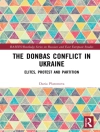The wide range of approaches to data analysis in qualitative research can seem daunting even for experienced researchers. This handbook is the first to provide a state-of-the art overview of the whole field of QDA; from general analytic strategies used in qualitative research, to approaches specific to particular types of qualitative data, including talk, text, sounds, images and virtual data.
The handbook includes chapters on traditional analytic strategies such as grounded theory, content analysis, hermeneutics, phenomenology and narrative analysis, as well as coverage of newer trends like mixed methods, reanalysis and meta-analysis. Practical aspects such as sampling, transcription, working collaboratively, writing and implementation are given close attention, as are theory and theorization, reflexivity, and ethics.
Written by a team of experts in qualitative research from around the world, this handbook is an essential compendium for all qualitative researchers and students across the social sciences.
Mục lục
PART ONE: MAPPING THE FIELD
Mapping the Field – Uwe Flick
PART TWO: CONCEPTS, CONTEXTS, BASICS – Uwe Flick
Notes Toward a Theory of Qualitative Data Analysis – Joseph A Maxwell and Margaret Chmiel
Analytic Inspiration in Ethnographic Fieldwork – Jaber F Gubrium and Jim A Holstein
Sampling Strategies in Qualitative Research – Tim Rapley
Transcription as a Crucial Step of Data Analysis – Sabine Kowal and Daniel C O′Connell
Collaborative Analysis of Qualitative Data – Flora Cornish, Alex Gillespie and Tania Zittoun
Qualitative Comparative Practices: Dimensions, Cases, and Strategies – Monika Palmberger and Andre Gingrich
Reflexivity and the Practice of Qualitative Research – Tim May and Beth Perry
Induction, Deduction, Abduction – Jo Reichertz
Interpretation and Analysis – Carla Willig
PART THREE: ANALYTIC STRATEGIES
Grounded Theory and Theoretical Coding – Robert Thornberg and Kathy Charmaz
Qualitative Content Analysis – Margit Schreier
Phenomenology as a Research Method – Thomas S Eberle
Narrative Analysis: The Constructionist Approach – Cigdem Esin, Mastoureh Fathi and Corinne Squire
Documentary Method – Ralf Bohnsack
Hermeneutics and Objective Hermeneutics – Andreas Wernet
Cultural Studies – Rainer Winter
Netnographic Analysis: Understanding Culture through Social Media Data – Robert V Kozinets Pierre-Yann Dolbec and Amanda Earley
Using software in Qualitative Analysis – Graham R Gibbs
PART FOUR: TYPES OF DATA AND THEIR ANALYSIS
Analyzing Interviews – Kathryn Roulston
Analyzing Focus Groups – Rosaline S Barbour
Conversations and Conversation Analysis – Merran Toerien
Discourses and Discourse Analysis – Carla Willig
Analyzing Observations – Amir B Marvasti
Analyzing Documents – Amanda Coffey
Analyzing News Media – Darrin Hodgetts and Kerry Chamberlain
Analyzing Images – Marcus Banks
Analysis of Film – Lothar Mikos
Analyzing Sounds – Christoph Maeder
Video Analysis and Videography – Hubert Knoblauch, René Tuma and Bernt Schnettler
Analyzing Virtual Data – Winfried Marotzki, Jens Holze and Dan Verständig
PART FIVE: USING AND ASSESSING QUALITATIVE DATA ANALYSIS
Reanalysis of Qualitative Data – David Wästerfors, Malin Åkerström and Katarina Jacobsson
Qualitative Meta-analysis – Ladislav Timulak
Quality of Data Analysis – Rosaline S Barbour
Ethical Use of Qualitative Data and Findings – Donna M Mertens
Analytic Integration in Qualitative-Driven (QUAL) Mixed- and Multiple-Method Designs – Janice M Morse and Lory J Maddox
Generalization in and from Qualitative Analysis – Joseph Maxwell and Margaret Chmiel
Theorization from Data – Udo Kelle
Writing and/as Analysis or Performing the World – Norman K Denzin
Implementation: Putting Analyses into Practice – Michael Murray
Giới thiệu về tác giả
Uwe Flick is Senior Professor of Qualitative Research in Social Science and Education at the Freie Universität Berlin, Germany. He is a trained psychologist and sociologist and received his Ph D from the Freie Universität Berlin in 1988 and his Habilitation from the Technical University Berlin in 1994. He has been Professor of Qualitative Research at Alice Salomon University of Applied Sciences in Berlin, Germany and at the University of Vienna, Austria. Previously, he was Adjunct Professor at the Memorial University of Newfoundland in St. John’s, Canada; a Lecturer in research methodology at the Freie Universität Berlin; a Reader and Assistant Professor in qualitative methods and evaluation at the Technical University Berlin; and Associate Professor and Head of the Department of Medical Sociology at the Hannover Medical School. He has held visiting appointments at the London School of Economics, the Ecole des Hautes Etudes en Sciences Sociales in Paris, Cambridge University (UK), Memorial University of St John’s (Canada), University of Lisbon (Portugal), Institute of Higher Studies in Vienna, in Italy and Sweden, and the School of Psychology at Massey University, Auckland (New Zealand). His main research interests are qualitative methods, social representations in the fields of individual and public health, vulnerability in fields like youth homelessness or (forced) migration and chronical illness in everyday live. He is the editor of The SAGE Handbook of Qualitative Research Design (2 Vols.; Sage 2022). The SAGE Handbook of Qualitative Data Analysis (Sage, 2014), The SAGE Qualitative Research Kit (Sage, 2nd edn, 2018), A Companion to Qualitative Research (Sage, 2004), Psychology of the Social (Cambridge University Press, 1998). His most recent publications are the seventh edition of An Introduction to Qualitative Research (Sage, 2023), Doing Grounded Theory (Sage, 2018), Doing Triangulation and Mixed Methods (Sage, 2018), The SAGE Handbook of Qualitative Data Collection (editor, Sage, 2018), the third edition of Introducing Research Methodology – Thinking Your Way through Your Research Project (Sage, 2020) and Doing Interview Research – The Essential How To Guide (Sage 2022). In 2019, Uwe Flick received the Lifetime Award in Qualitative Inquiry at the 15th International Congress of Qualitative Inquiry.












